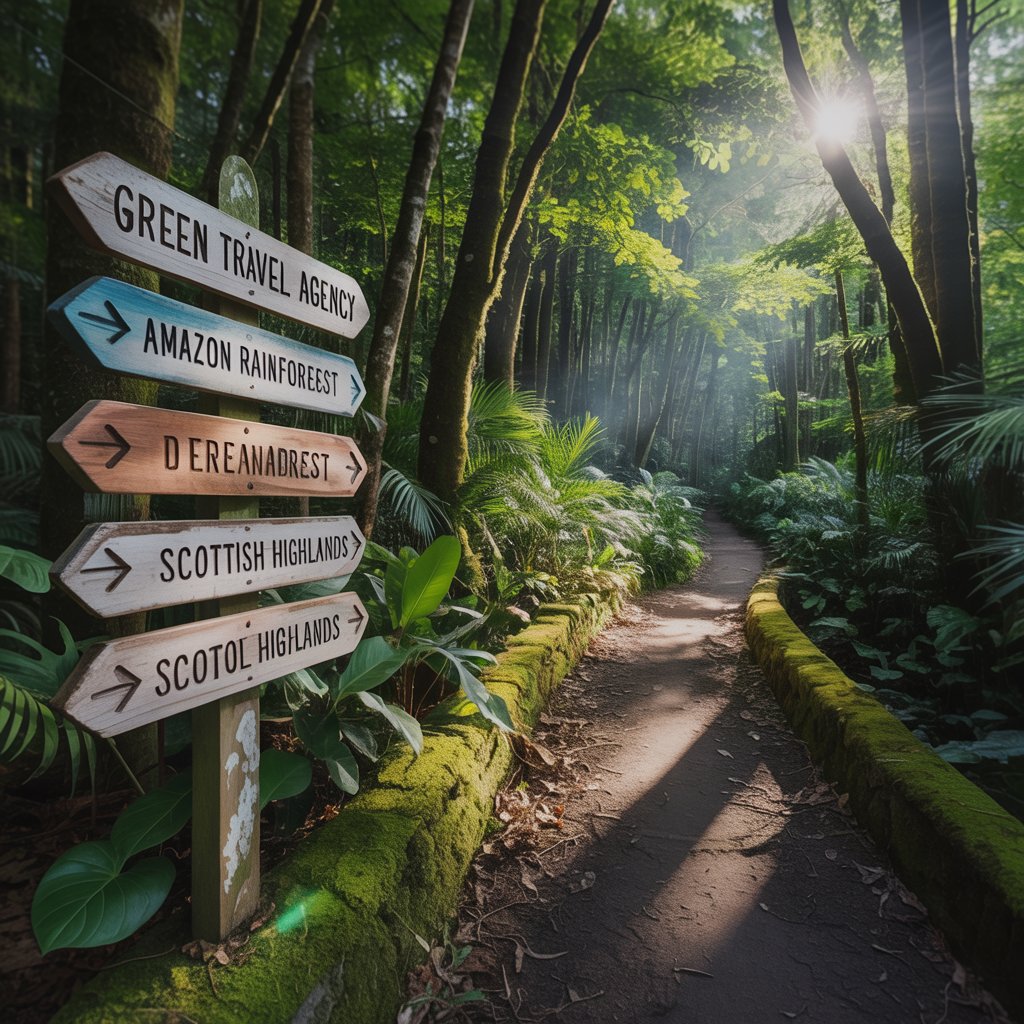Many people want trips that protect the planet and suit their budgets. Picking an eco-friendly travel agency can feel hard when marketing slogans outshine facts. That’s why smart travelers study real customer stories before booking anything.
For example, a popular set of Trip.com reviews shows how everyday voices reveal honest behavior. By reading clear accounts, you can test claims about carbon offsets, local guides, or paperless tickets. You see whether bold promises match the reality or fade after purchase.
This approach works for small boutique firms and big booking platforms alike. It cuts through shiny branding and spotlights actions that matter most. The guide below turns the process into simple steps. Each part shows what to check, how to judge claims, and when to move along. With patience and focus, anyone can choose a greener travel partner with confidence.
Know What Truly Makes a Travel Agency Green
A green logo or leafy color scheme doesn’t guarantee sustainable action. Before reading reviews, learn which practices bring real environmental benefits. A genuinely green agency will often:
- Lower emissions by promoting trains, buses, or direct flights where possible.
- Support local communities by hiring resident guides and using family-run accommodations.
- Reduce waste through digital passes, refill water stations, and plastic-free welcome packs.
- Maintain verified eco-certifications such as:
- Green Globe – Recognized worldwide for sustainable tourism practices.
- EarthCheck – Focuses on carbon reduction, water conservation, and social impact.
Keep this checklist handy as you read through reviews. Mentions of tree planting or beach clean-ups matter only when tied to the agency’s core operations. Strong players hit most points repeatedly across different trips; weak ones miss key marks often.
Read Reviews With Care and Good Sense
Once you know the criteria, start digging into feedback from past clients. Star ratings give a quick view, but the words matter more.
- Sort by recent date to see if sustainable practices are still in place.
- Look for a balance of praise and constructive feedback — only perfect reviews can signal filtered or biased content.
- Pay attention to specific examples like named bike paths, eco-lodges, or solar-powered boats.
- Be wary of vague marketing phrases like “unparalleled immersive experience” without real-world details.
- Weigh volume — two hundred mixed reviews tell you more than ten glowing ones.
When you combine these checks, scattered comments start to form a clear picture of an agency’s true environmental commitment.
Common Greenwashing Tactics to Watch For
Unfortunately, not every company that claims to be sustainable truly is. Watch out for these common greenwashing tricks:
- Vague eco-language – Terms like “eco-friendly” or “green” without specific proof or measurable targets.
- Irrelevant initiatives – Highlighting small actions (like recycling bins in the office) while ignoring larger impacts (like fuel-heavy travel packages).
- Overemphasis on offsets – Promoting carbon offsets without reducing actual emissions or showing transparency about the offset program.
- Stock imagery and borrowed stories – Using photos of nature or generic wildlife not connected to their actual tours.
- No third-party verification – Claiming sustainability without certifications, audits, or partnerships that can be checked.
Spotting these red flags early helps you avoid agencies that talk the talk but don’t walk the walk.
Match Green Claims With Visible Proof
Reviews can be persuasive, but proof is better. After scanning feedback:
- Visit the agency’s website and social media. Look for photos of refill bottle stations, local wildlife protections, or zero-plastic initiatives.
- Check for annual sustainability reports with measurable goals (e.g., tons of CO₂ offset, funds donated to conservation).
- Confirm that listed partners — like lodges or tour companies — also hold credible certifications.
- Watch for operational choices, such as using bus passes instead of private cars or limiting group sizes to reduce impact.
When reviews, public reports, and visual evidence all align, you can be confident the agency is keeping its green travel promises.
List of Questions to Ask Before Booking
Before committing to a booking, send a short list of direct questions to the agency. Their answers — and how quickly and clearly they respond — will tell you a lot. Consider asking:
- Do you publish an annual sustainability report with measurable targets?
- What eco-certifications do you and your partners hold?
- How do you reduce emissions on your trips?
- Do you prioritize local guides and accommodations?
- What measures are in place to limit waste during tours?
- How do you ensure your wildlife or nature experiences are ethical?
- Can you provide examples of past projects that directly benefited local communities or conservation efforts?
Agencies that answer confidently — with specific, verifiable details — are more likely to genuinely uphold sustainable practices.
Make a Clear Choice With Confidence
After weighing all the information, narrow down your shortlist. To finalize your decision:
- Create a simple comparison grid with agencies in rows and key values in columns — low emissions, local hiring, waste reduction, certifications, and cost.
- If two options are close, send each a short inquiry and gauge their responsiveness. Fast, transparent answers often signal genuine care.
- Factor in your own values — some travelers prioritize wildlife conservation, others focus on cultural preservation.
Final Thought
Choosing an eco-friendly travel agency isn’t just about avoiding greenwashing — it’s about actively supporting businesses that protect the destinations you love. With a little research, you can book knowing your trip will be both memorable and responsible.
Good planning sets the tone before your bags are packed, and your choice can leave a positive footprint long after you return home.




